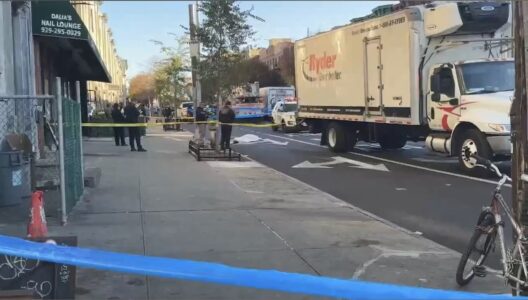It’s father vs. son.
The dad is 95-year-old Navy veteran Mario Bisogno, Sr., who, as a teenager, served aboard a munitions carrier in the Pacific during World War II. Bisogno, a Gravesend resident, who spent his post-Navy years as a butcher, working out of a store on Nostrand Avenue in East Flatbush, vividly recalls sailing into Australia’s Lady Bay on a ship loaded with 12,000 tons of live ammunition, constantly worrying that enemy ships might blow up the vessel.
That didn’t come to pass, and Bisogno – who enlisted before he actually turned 18 – ended his Navy service in 1946 with a fistful of medals.
“I’m lucky I came out alive,” he recalled.
For Bisogno, now embroiled in a lawsuit against his son, that experience may be only the second most trying in his life.
According to attorney Frank Seddio, who, along with Adam Kalish, represents the older Bisogno, the issue boils down to “a dispute between the father and the son about whether or not the father signed over to his son the ownership of” a mixed-use building, with a store and two apartments, at 1854 Nostrand Avenue, in May, 2017.
Bisogno bought the butcher shop when the previous owners retired, and then the building. Following retirement, it was his only source of income aside from Social Security.
His son, Mario, Jr., “acted like I was already dead,” Bisogno said. “He wiped me out of every- thing.”
Now, he has trouble sleeping, and barely leaves the house because he can’t afford to purchase an appropriate van or install equipment that would ease his way in and out. The building at the center of the dispute had previously been incorporated, with the elder Bisogno as CEO and his oldest son as president. At that time, the elder Bisogno kept 12 shares of stock, giving one each to his three children, for a total of 15 shares.

Seddio said that Mario, Jr., has produced a stock transfer allegedly signed by his father giving the elder Bisogno’s 12 shares to him. The questions, said Seddio, are “whether in fact it is the father’s signature,” or “whether the father was notified what he was doing” [if he did indeed sign the transfer].
“It’s at least reprehensible, and at worst, a fraud,” he said, noting that, if the elder Bisogno in fact signed the stock transfer, he and his son were represented by the same attorney, who also represented the corporation for years. “It was an adversarial thing,” Seddio contended. “That attorney should have had indicated to him very strongly to retain his own counsel, if indeed the elder Bisogno was present.
“Our allegation,” he continued, “is that the father never signed the paper or, if he signed it, it was under false pretenses, that his son said, ‘There are papers for you to sign,’ and the father had no idea he was giving away ownership of the building. Common sense dictates, why would he give it up?”
Seddio noted that the older man didn’t even learn about the alleged transfer until he attempted to sell the building in late 2019 and was told it couldn’t be listed for sale because its ownership was in dispute.
This came as a huge shock to Bisogno. Between spring, 2017, when the disputed stock transfer is dated, and fall, 2019, he continued to pay the building’s bills, using the corporate account, even adding his own money when necessary, and received the income from the building. Why, he wonders, would he have had access to the corporate account if he no longer held any shares or position in the corporation?
“As sure as God made apples, I never signed one of my shares over to him,” Bisogno said. “Sometime, I even cry like a baby because I lost the building over nothing.” Since the end of 2019, he said, he hasn’t received any income from the building, and his quality of life has suffered.
“I’m not a big spender,” Bisogno said. “I just want money to live.”
Domenick Napoletano, the attorney representing the younger Bisogno, contends the transfer was part of an “estate plan” executed by the older man, who in 2010 added his daughter, who
lives in his Gravesend house and helps care for him, to the deed of the home. Because the elder Bisogno had given his daughter the house, Napoletano said, he gave the East Flatbush building to his oldest son.
“Nothing was taken away from him,” Napoletano said, calling the elder Bisogno, “a cantankerous old man being manipulated by his daughter.”

But, asks Seddio, why would the older Bisogno have retained a life interest in the Gravesend house but not protected his income from the Nostrand Avenue property during his lifetime. “Why not a life estate?” he demanded.
And, why would he have provided for his daughter and his elder son, but not for his younger son? “It was always the intention of the father to leave all his shares to the three of them, evenly,” Seddio said. “Why would he change the status quo in the middle?”
If a settlement can’t be reached – discussions have stalled, Seddio said – the case will be heard in March, 2023 in a trial presided over by New York State Supreme Court Justice Reginald Boddie.

 On the Avenue: Kids ‘Reaching-Out’ to families in need this Thanksgiving
On the Avenue: Kids ‘Reaching-Out’ to families in need this Thanksgiving  Man killed by truck after falling off sidewalk
Man killed by truck after falling off sidewalk